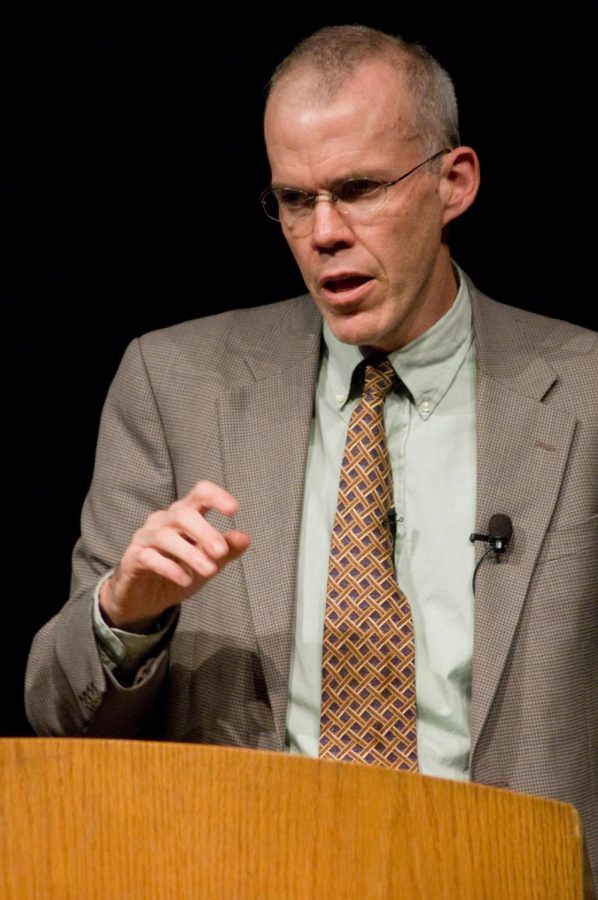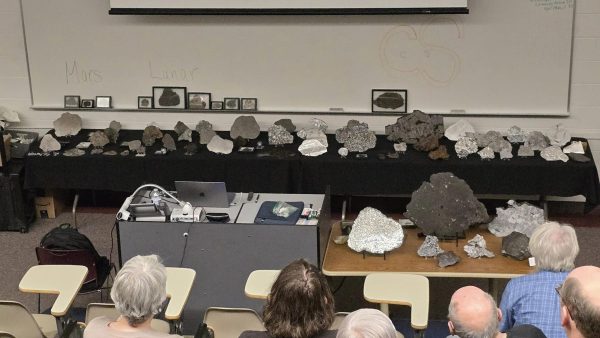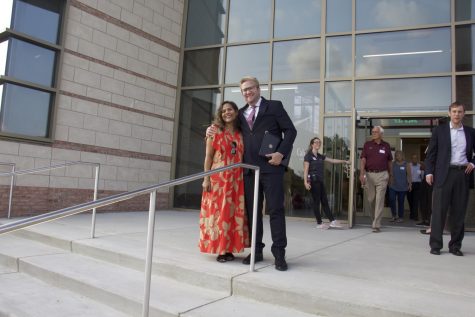Bill McKibben speaks on global climate change at Festival of Faith & Writing
Bill McKibben, an American environmentalist and writer, delivered the closing keynote of the Festival of Faith & Writing held at Calvin last weekend. His speech, titled “Storytelling, activism, and keeping the faith,” gave insights on his journey of advocating for the environmental movement with sprinklings of statistics and stories throughout.
McKibben has written many books about climate change, including “The End of Nature,” which was first published in 1989 and is written for non-scientific readers. He cited Wendell Berry, as well as the biblical book of Job, as some of his inspirations for the cause.
In his keynote, McKibben showed photographs of various areas of the earth being impacted by recent global climate change after having been the same for millenia. This included glaciers of ice that are melting quickly and tropical fish in the Maldives that he had seen with his wife, where now there is only dead coral.
“This is an enchanted corner of God’s brain that is being lobotomized before our eyes,” said McKibben.
He also recalled visiting Bangladesh and being struck by “just how unfair [it] was” that nobody in the South Asian country had caused this problem, yet were suffering its effects. Many of the citizens were too poor to even drive a car, and it was the poor that did not have the means to be treated for dengue fever, a mosquito-borne viral disease that has become a threat in the region due to climate change.
In 2007, McKibben led a nationwide environmental campaign in Vermont to demand action on global climate change, which by 2008 had evolved to become a worldwide movement called 350. Its committee started out with McKibben and seven college students and has since mobilized people from all over the world to campaign in their native lands.
McKibben noted that 30 years ago there were no religiously-motivated environmental movements, and although this has changed there is still “work to do here.”
“The least helpful tribe on this earth has probably been white American Protestants … [who] elected the man who pulled us out of the Paris climate accord,” he said.
However, he did recognize that there are still people within this group who are committed to the fighting climate change.
“It’s not working fast enough. We’re losing this fight,” McKibben said, adding that beyond education, the fight has escalated to confrontation. According to McKibben, some scientist activists have even intentionally put themselves in situations to be arrested in order to be heard. Though it is not ideal, he believes the fight is worth it and espoused civil disobedience and turning the other cheek as means to achieve a worthwhile end.
McKibben remains hopeful about the cause, citing the adoption of solar panels, now the cheapest way to get electrical power in some regions, some of which have never had access to power before.
McKibben called on the audience of writers and people of faith at the Festival keynote to figure out the tropes and ideas that could reach people in deep ways.
“I have no idea whether we will win this fight or not. But it’s the wrong question to be asking.” The right question, McKibben said, is “What might we be called to do?” To that he answered, “[it] can be found in the first pages of Genesis: to look after this place we’ve been given.”












